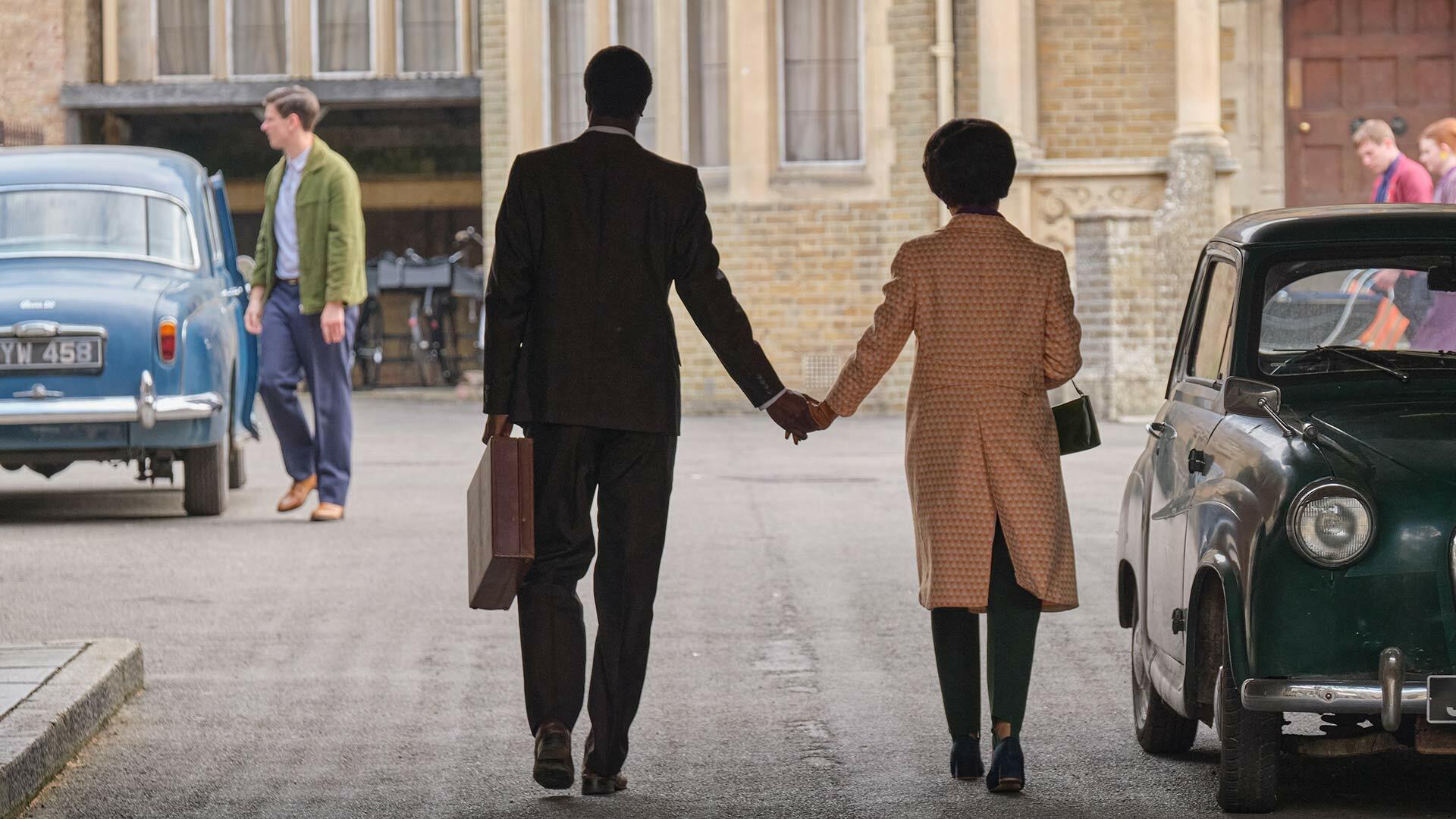This week on Call the Midwife, we experienced two hard-hitting topics: abuse and pregnancy loss. This blog post will discuss these topics, so please exercise caution, and consider skipping this week’s blog if this is too difficult to read about.
Call the Midwife has never shied away from discussing difficult or controversial topics. I think talking openly about topics like pregnancy loss has helped to take away the shame that so many people feel about this topic. When a pregnancy loss happens, most people wish they had answers. Why did this happen? Was there anything I could have done differently? Did I exercise too hard, eat unhealthy foods, or was I too stressed out? Even though we know that most miscarriages happen because the baby isn’t developing as expected, I see that many women, including Lucille, feel some level of guilt over their pregnancy loss. It was devastating to watch Lucille say that as a midwife, she felt like a failure for experiencing her own pregnancy loss. She felt like she should have been “good” at pregnancy. She spends her working hours monitoring other women’s pregnancies and helping them safely bring their babies into the world, and not being “able” to protect her own growing baby was hard for her to wrap her head around.
Of course, we all know that Lucille did nothing wrong, Her miscarriage was not her fault. Lucille has a unique experience though, because she is immersed in pregnancy and birth in all aspects of her life. I am not saying that other people who experience loss have an easier time than she will, but working in a reproductive health care environment potentially adds a layer to the trauma of her loss. I think about the possibility of Lucille caring for other women who are due around the same time she would have been. I see her imagining how she would be feeling if she was still pregnant as she cares for women at all phases of pregnancy. I have had several colleagues experience infertility or pregnancy loss, and return to work on our labor and delivery unit. It is not an easy task to separate your grief from your work when the two are so intertwined.
Our other sensitive storyline this week involved child abuse and intimate partner violence. We met the Packer family, who was receiving care from Trixie because the husband and father, Gordon, had been in an accident that left his legs paralyzed. He had left the hospital early (often called “against medical advice”), and therefore required a lot of care and education to learn how to function independently at home. Trixie finds out that the Packers’ children, Deborah and David, have been abused by their mother, Glenda. Trixie had also noticed bruises and signs of abuse on Gordon when she was helping him change. I have to give kudos to Call the Midwife for portraying intimate partner violence where the female partner is the abuser. So often, abuse of a male partner by a female partner is not discussed. Much like the topic of pregnancy loss, there is a societal shame surrounding men who are abused by women, even though we know there shouldn’t be. I was so grateful that Deborah had the courage to admit that she was the one asking about the NSPCC (National Society for the Prevention of Cruelty to Children) in the question box at school. Without her bravery, who knows how long she and David might have suffered their mother’s abuse. Gordon, now being a paraplegic who relied on Glenda so heavily for help, didn’t feel like he had a way out. With the proper support, Gordon and the children were able to get away from Glenda, and Glenda now faces criminal charges for child abuse.
When I see these difficult and emotional topics on Call the Midwife, I hope that people who might have experienced similar events in their own lives will feel less alone. I hope they are able to shed the stigma that so often follows miscarriage or abuse. I hope that if they are struggling, they might see themselves a little in Deborah’s character, and realize that reaching out and asking for help might be scary, but they can do it. Included below are some resources in case you or someone you know might benefit.
